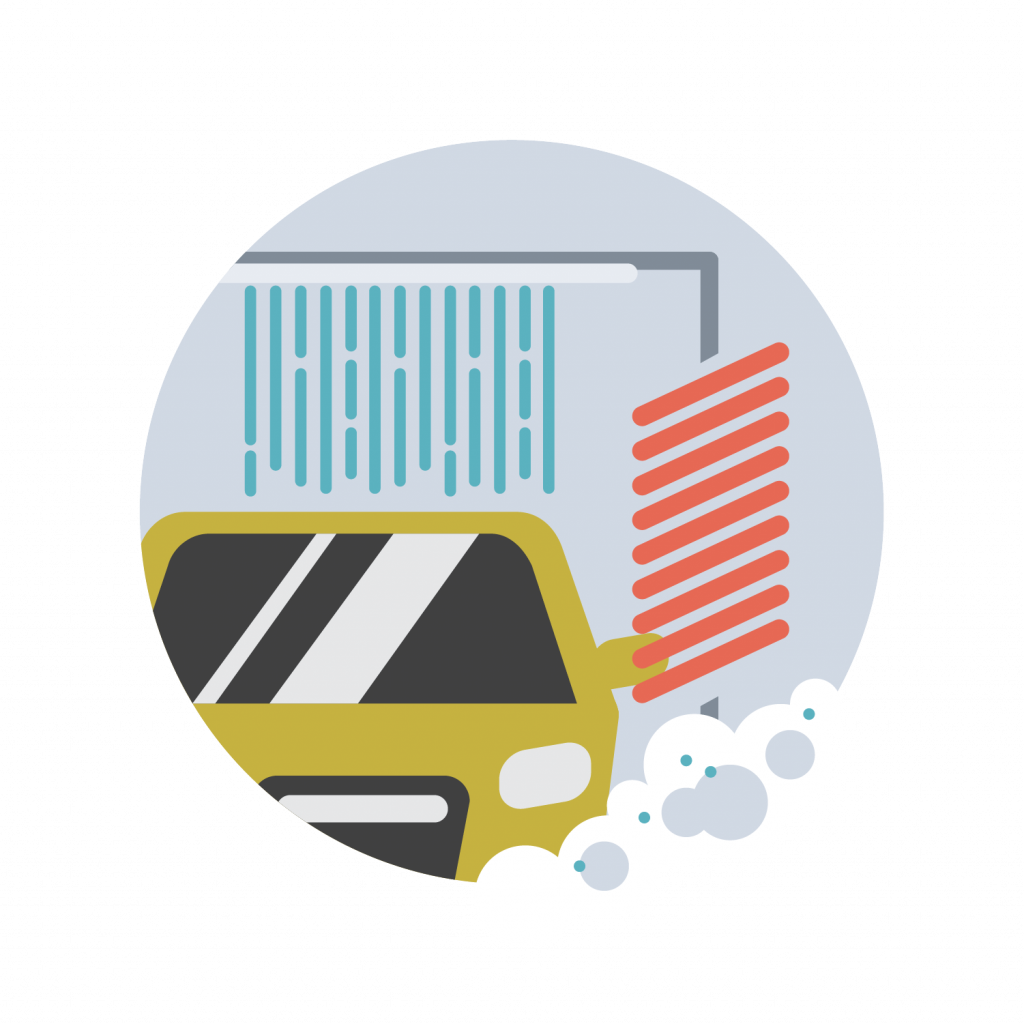Follow the Drop – Car Wash

Car Wash
Did you know that in some Alberta communities, you can get a fine for washing a car in your driveway? This is because rather than heading to the sewer system where water is eventually cleaned at a wastewater treatment plant, the oily and greasy water from home car washes goes to the stormwater system, potentially causing clogs. Some communities also have bylaws against home car washing in order to protect the ecosystem from the soap and chemicals that drip off of cars being cleaned.
Even in commercial car washes, water quality is impacted. There are a several chemical cleaning products used including presoak, shampoos, detergents, drying agents, glass cleaners, rust inhibitors, body protectants and others. The dirt on cars that comes from roads can also contain toxic chemicals, heavy metals, oil and grease.
Fun Fact
Commercial car washes: You may be surprised to learn that water at a commercial car wash is potable! It is also interesting to know that on average, professional car washes use far less water than a self-wash in your driveway.
Definition
Contaminant: You may be surprised to learn that water at a commercial car wash is potable! It is also interesting to know that on average, professional car washes use far less water than a self-wash in your driveway.

Where next?
These contaminants are why it is important that commercial water users, including car wash facilities, send their wastewater into the sewer rather than into the stormwater system. This is also why your only next is through the sewer to a wastewater treatment plant.
References and Further Reading
- Kusek, M. (2019, October 21). Carwash chemicals 101. Retrieved May 21, 2020, from https://www.carwash.com/carwash-chemicals-101/
- The City of Calgary. (2012). Bylaws related to residential car washing. Retrieved May 21, 2020, from https://www.calgary.ca/CSPS/ABS/Pages/Frequently-asked-questions/Sewers-drainage.aspx?WT.ti=Sewers%2520and%2520drainage%2520-%2520FAQ
